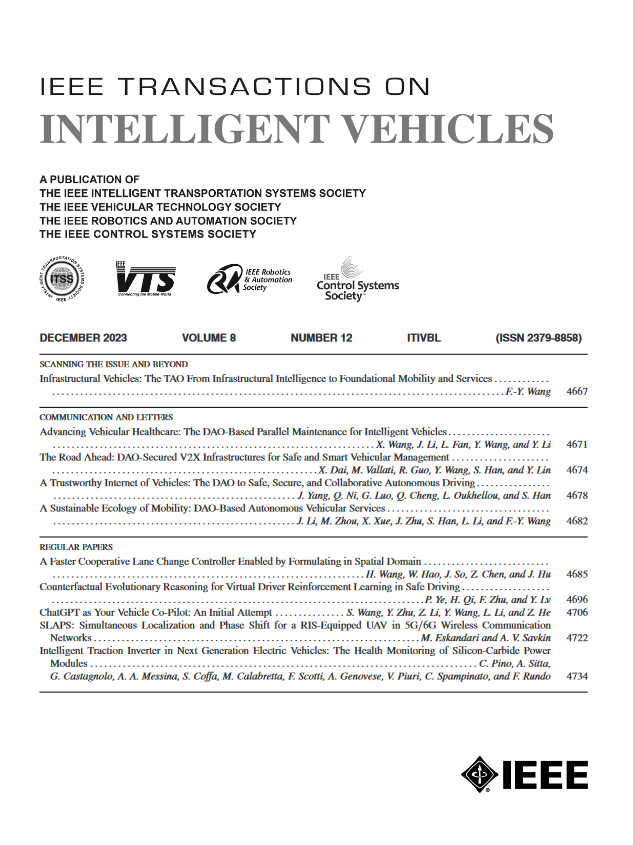基于q -学习的无人机轻型多目的地城市路径规划方法
IF 14
1区 工程技术
Q1 COMPUTER SCIENCE, ARTIFICIAL INTELLIGENCE
引用次数: 0
摘要
UAV技术的进步已经促进了轻型机载平台的发展,能够完成各种各样的任务,因为各种各样的可安装的传感和交互模块可用。为了进一步发展无人机,扩大其应用范围,必须为其提供完全自主的操作能力。为了应对这一挑战,我们提出了多q表路径规划(MQTPP),这是一种专门为无人机在城市环境中的路径规划量身定制的新方法。传统的q学习方法需要根据城市景观或目标的动态变化进行重新学习,而MQTPP不同,它可以利用起飞前执行的单一学习阶段,以显著的效率自适应地重新规划无人机路径。仿真结果表明,MQTPP具有在飞行过程中快速生成新路径或修改现有路径的特殊能力。这种性能在计算效率方面明显优于现有的最先进的方法,同时仍然可以获得接近最优的路径规划结果。因此,展示了MQTPP作为复杂城市环境中实时、自适应飞行无人机导航的强大解决方案的潜力。本文章由计算机程序翻译,如有差异,请以英文原文为准。
An Efficient and Rapidly Adaptable Lightweight Multi-Destination Urban Path Planning Approach for UAVs Using Q-Learning
Advancement in UAV technologies have facilitated the development of lightweight airborne platforms capable of fulfilling a diverse range of tasks due to a varied array of mountable sensing and interaction modules available. To further advance UAVs and widen their application spectrum, providing them with fully autonomous operations capability is necessary. To address this challenge, we present Multiple Q-table Path Planning (MQTPP), a novel method specifically tailored for UAV path planning in urban environments. Unlike a conventional Q-learning approach that necessitates relearning in response to dynamic changes in urban landscapes or targets, MQTPP is designed to adaptively re-plan UAV paths with notable efficiency, utilising a singular learning phase executed prior to take-off. Results obtained through simulation demonstrate the exceptional capability of MQTPP to swiftly generate new paths or modify existing ones during flight. This performance significantly surpasses existing state-of-the-art methods in terms of computational efficiency, while still achieving near-optimal path planning results. Thus, demonstrating MQTPP's potential as a robust solution for real-time, adaptive in-flight UAV navigation in complex urban settings.
求助全文
通过发布文献求助,成功后即可免费获取论文全文。
去求助
来源期刊

IEEE Transactions on Intelligent Vehicles
Mathematics-Control and Optimization
CiteScore
12.10
自引率
13.40%
发文量
177
期刊介绍:
The IEEE Transactions on Intelligent Vehicles (T-IV) is a premier platform for publishing peer-reviewed articles that present innovative research concepts, application results, significant theoretical findings, and application case studies in the field of intelligent vehicles. With a particular emphasis on automated vehicles within roadway environments, T-IV aims to raise awareness of pressing research and application challenges.
Our focus is on providing critical information to the intelligent vehicle community, serving as a dissemination vehicle for IEEE ITS Society members and others interested in learning about the state-of-the-art developments and progress in research and applications related to intelligent vehicles. Join us in advancing knowledge and innovation in this dynamic field.
 求助内容:
求助内容: 应助结果提醒方式:
应助结果提醒方式:


